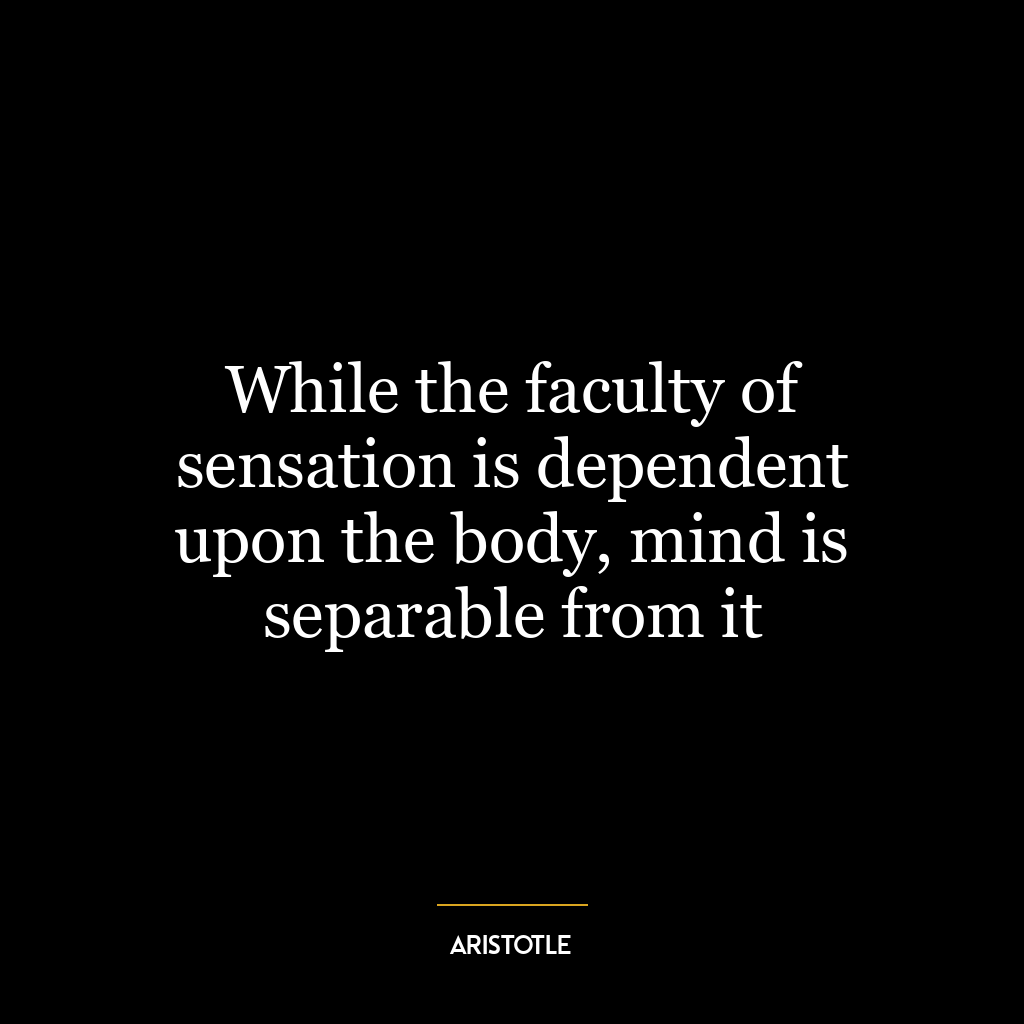Aristotle’s quote “While the faculty of sensation is dependent upon the body, mind is separable from it” expresses his perspective on the dualistic nature of human beings. It suggests that our physical sensations are tied to our physical bodies, but our mind, or consciousness, is a separate entity that can exist independently.
The “faculty of sensation” refers to our five senses – sight, hearing, smell, taste, and touch. These senses are directly tied to our physical bodies. For instance, our eyes allow us to see, our ears enable us to hear, and so on. Without the body, these senses cannot function.
On the other hand, the “mind” in this context can be interpreted as our consciousness, thoughts, and mental processes. Aristotle suggests that the mind is not tied to the physical body in the same way our senses are. It’s a separate entity that can exist independently of the body.
This idea can be applied in various ways in today’s world. In the realm of personal development, it suggests that our physical limitations do not necessarily limit our mind or our capacity to think, learn, and grow. For instance, a person with a physical disability may not be able to experience the world in the same way as an able-bodied person, but this does not limit their mental capabilities or their potential for intellectual growth.
In a broader societal context, this quote could be used to argue against materialism, the belief that physical matter is the only reality. It suggests that our consciousness or mind is a separate, non-physical entity that also forms part of our reality.
Furthermore, this idea is also relevant in discussions about artificial intelligence. If the mind is indeed separable from the body, it raises questions about whether it’s possible to create a machine or software that truly mimics the human mind. If the mind is not solely a product of the physical brain, then a physical machine might never fully replicate human consciousness.
Overall, Aristotle’s quote invites us to consider the complex relationship between our physical bodies and our minds, and the potential implications of this relationship in various aspects of our lives.














